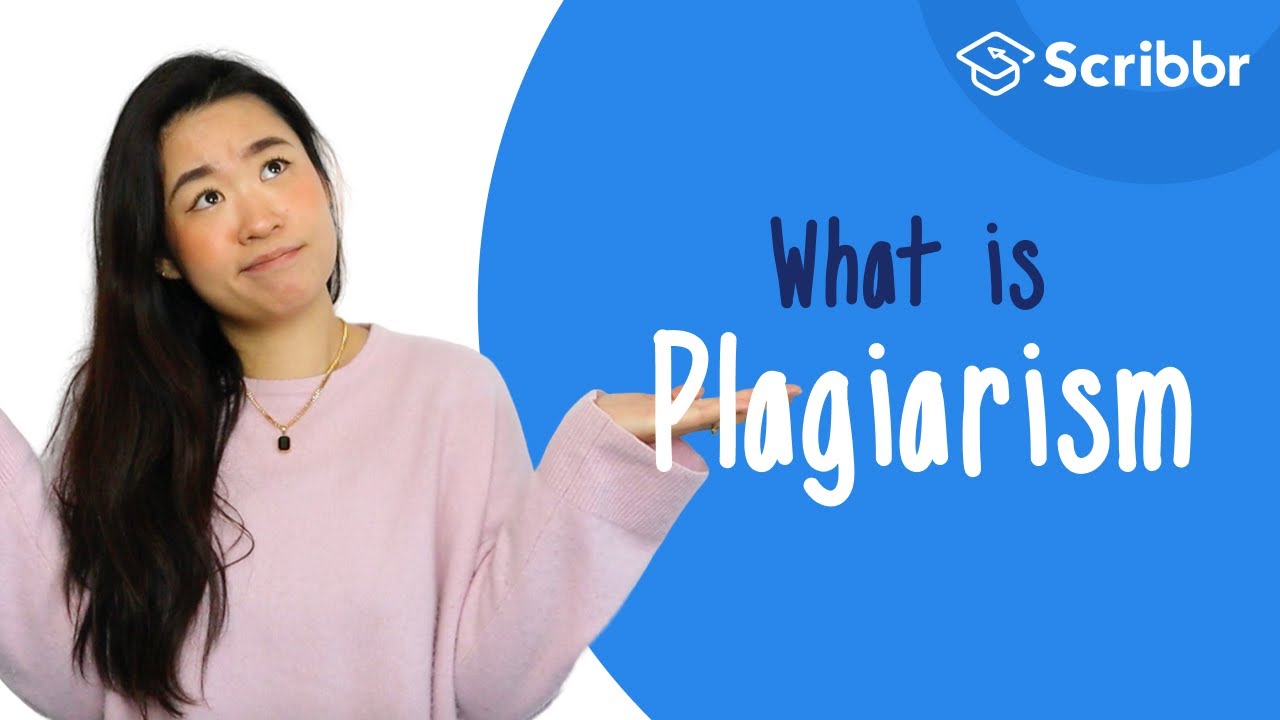Common Facts About Plagiarism Exercise
Plagiarism exerciseis the diversion of the words and thoughts of others. It's intellectual cheating. At university, it violates the norms of honor and can cause irreparable harm to a person's reputation. It also has serious consequences. Plagiarized term papers can lead to grade failures, suspension, or dropouts. Of course, this topic should not be underestimated. The best way to avoid plagiarism is to understand the concept yourself.
What Is Plagiarism?

What is plagiarism? | Scribbr 🎓
Plagiarism is the exercise of using someone else's words, sentences, or ideas and passing them off as your own work without giving credit by citing where you got the original source.
You can be plagiarizing if you are:·
- Copying any typing of multimedia (graphics, audio, video, internet streams), computerprograms, music compositions, graphs, or charts from someone else's work without giving credit to the original author.
- Combining phrases, ideas, and sentences from a variety of sources to come up with an essay.
- Building on someone else's idea to write your paper without giving the original author credit.
- Submitting your own paper in more than one course.
- Submitting someone else's work as your own work.
- Purchasing a paper from a paper milll, website or other sources.
- Copying sentences, phrases, paragraphs, or ideas from someone else's work, published or unpublished, without giving a credit to the original author.
- Replacing selected words from a literature work without giving the original author a credit.
Common Knowledge
There is no need to quote Common knowledge. Common knowledge includes facts that are known to many and can be found in many sources. For example, you don't need to quote:
- In 1865, Andrew Johnson was elected as the 17th President of the United States following the assassination of Abraham Lincoln.
- William Shakespeare was born in 1564 and died in 1616.
- A genome is all the DNA in an organism which includes its genes.
What Is Paraphrasing?
Paraphrasing is translating the words and thoughts of others into your own. Some of the most common mistakes made when writing a research paper are false paraphrases and do not admit the original author. You use your own words, but the idea belongs to someone else and deserves a quote.
Paraphrasing is not just a rearrangement or paraphrasing of the original passage. Paraphrasing consists of reading the original text, understanding what the original author is saying, summarizing the information, and then writing down the idea in your own words.
Simply changing a few words or using a synonym tool is not a correct paraphrase. In fact, it is possible to unintentionally change the meaning of the source. To show that you fully understand the material, be sure to fully state the author's points in your own words and always cite the source.
Why Is It Wrong To Plagiarize?
Plagiarism is considered unethical for the below reasons:
- First, it is considered unethical because it is a form of theft. They are stealing the intellectual property of others by pretending to be their own thoughts and words.
- Second, it is unethical because the thief benefits retroactively from this theft.
- Third, a degree is a testament to the skill and knowledge of its holder. If you get a job based on a qualification that you did not obtain, you may endanger others.
Certainly, some students cheat. They deliberately take the results of the efforts of others and use them to gain credit for themselves with little or nothing learned in the process. However, most cases of plagiarism are unconscious and can be avoided if students become more aware of their writing or research practices. Most plagiarized students usually plagiarize unintentionally, either because they lack skills that are not overly dependent on the work of others, or because they do not know what plagiarism is.
Consequences Of Plagiarism- Is It Considered As A Crime?
Depending on the context, the consequences of plagiarism range from term paper failures to serious legal issues. As a student, if you submit a work that you do not plan to publish, plagiarism may not have any legal consequences. However, it can have serious implications for education, from failing grades to probation and dropout from school. If you want to publish your work, plagiarism can damage your reputation and lead to legal issues. Failure to credit the original artist or creator can result in loss of income or other financial consequences. Intellectual property theft often violates the law if it is copyrighted and has legal implications.
Using Direct Quotes
To support your own ideas, you need to use literal quotes and paraphrases. When quoting or paraphrasing according to the citation style, acknowledge the credit of the original author. Use parentheses, footnotes, or endnotes to cite the original source or write a sentence that recognizes the original author. If you use the key phrase of the original passage and paraphrase the rest, you must enclose the key phrase or the original word in quotation marks. for example:
Original Passage: The movie genre has become increasingly concerned with the relative and fragile nature of existence. Source: Wells, Paul. The Movie Genre: From Beelzebub to Blair Witch. London: Wallflower, 2000.
Acceptable Paraphrase: Movie films often examine the "relative and fragile nature" of humanity and what it means to exist (Wells 9).
Conclusion
To summarize, plagiarism should be taken seriously and be avoided at all costs. Plagiarism can take many forms, from deliberate fraud to accidental copying from a source for no reason. Therefore, whenever you use someone else's words or ideas at work, you must acknowledge where they came from. Luckily, due to sophisticated technology, you can detect plagiarism in real-time and at a superfast speed using plagiarism checking tools that are available online.